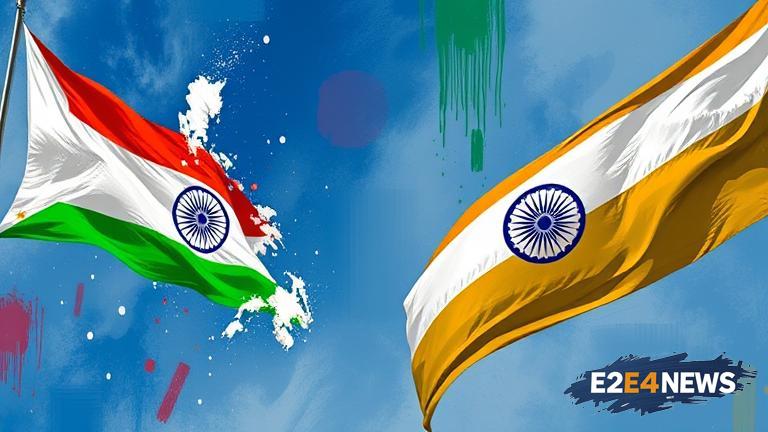The Philippines and India have been actively working to strengthen their ties in recent years, with a focus on enhancing economic cooperation, boosting trade, and promoting cultural exchange. This move is seen as a strategic decision by both countries to diversify their partnerships and reduce dependence on traditional allies. The Philippines, under the leadership of President Ferdinand Marcos Jr., has been keen to expand its diplomatic outreach and explore new opportunities for growth. India, on the other hand, has been pursuing an ‘Act East’ policy, aimed at strengthening its engagement with Southeast Asian nations. The two countries have identified areas of mutual interest, including trade, investment, defense, and security. They have also agreed to cooperate in the fields of science and technology, education, and culture. The Philippines and India have a long history of friendly relations, with India being one of the first countries to recognize the Philippines’ independence in 1946. Since then, the two nations have maintained a strong and cordial relationship, with regular exchanges of high-level visits and cooperation in regional and international forums. In recent years, the Philippines and India have stepped up their engagement, with a series of high-level visits and meetings. In 2022, Indian Prime Minister Narendra Modi visited the Philippines, marking the first-ever visit by an Indian prime minister to the country. The visit was seen as a significant milestone in the bilateral relationship, with the two leaders discussing ways to enhance cooperation in areas such as trade, investment, and defense. The Philippines and India have also been working to strengthen their economic ties, with a focus on increasing trade and investment. The two countries have agreed to explore opportunities for cooperation in areas such as infrastructure development, agriculture, and information technology. They have also discussed the possibility of establishing a free trade agreement, which would further boost trade and investment between the two nations. In addition to economic cooperation, the Philippines and India have also been working to enhance their security ties. The two countries have agreed to cooperate in areas such as counter-terrorism, maritime security, and cyber security. They have also discussed the possibility of conducting joint military exercises and cooperating in defense production. The Philippines and India have also been promoting cultural exchange and people-to-people ties. The two countries have agreed to cooperate in areas such as education, tourism, and cultural exchange, with a focus on promoting mutual understanding and respect. The strengthening of ties between the Philippines and India is seen as a positive development for the region, with the potential to promote peace, stability, and prosperity. The two countries have a shared commitment to democracy, freedom, and human rights, and their cooperation is expected to contribute to the promotion of these values in the region. Overall, the Philippines and India are poised to embark on a new era of cooperation, driven by mutual interests and a shared commitment to promoting peace, stability, and prosperity in the region. The future of the bilateral relationship looks bright, with opportunities for cooperation in areas such as trade, security, and cultural exchange. As the two countries continue to work together, they are expected to make significant progress in promoting their mutual interests and contributing to the development of the region. The Philippines and India are also expected to play a key role in promoting regional cooperation and integration, through their participation in regional forums such as the Association of Southeast Asian Nations (ASEAN) and the East Asia Summit. The strengthening of ties between the Philippines and India is a significant development for the region, with the potential to promote peace, stability, and prosperity. The two countries have a long history of friendly relations, and their cooperation is expected to contribute to the promotion of democracy, freedom, and human rights in the region.





